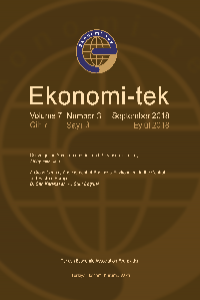Informal Payments to the Tax Collector in Transition Countries
Tax collection, informal payments, gifts, bribes, corruption, transition economy
Informal Payments to the Tax Collector in Transition Countries
Tax collection, informal payments, gifts, bribes, corruption, transition economy,
___
- Allingham, M. G. and A. Sandmo, (1972), “Income Tax Evasion: A Theoretical Analysis,” Journal of Public Economics (1), pp. 323-338.
- Anderson, John E., (forthcoming), "Economic Reforms and their Impacts on Informal Payments for Government Services in Transition Countries," International Public Management Journal.
- Anderson, John E., (2014), "Pay Me Now or Pay Me Later: Business Permit Applications, Waiting Time, and Bribery of Government Officials in Transition Countries," Paper presented at the 70th Congress of the International Institute of Public Finance, Lugano, Switzerland, August 20, 2014.
- Blanchard, Olivier, (1997), The Economics of Post-Communist Transition. Oxford, UK: Clarendon Press.
- Carlin, W., M. Schaffer, and P. Seabright, (2007), "Where Are the Real Bottlenecks? Evidence from 20,000 Firms in 60 Countries about the Shadow Costs of Constraints to Firm Performance," IZA Discussion Paper Number 3059.
- Cornes, Richard, (1992), Duality and Modern Economics. Cambridge, UK: Cambridge University Press.
- Cremer, H., (1990), “Evading, Auditing and Taxing: The Equity-Compliance Tradeoff,” Journal of Public Economics, 43(1), pp. 67-92.
- Ericson, Richard E., (1991), "The Classical Soviet-type Economy: Nature of the System and Implications for Reform," Journal of Economic Perspectives, 5, pp. 11-28.
- Ericson, Richard E., (1999), "A Comment on `The Anatomy of Russia's Virtual Economy.'" Columbia University, Department of Economics, Working Paper.
- Ericson, Richard E., and Barry W. Ickes, (1999), "A Model of Russia's `Virtual Economy.'" Columbia University, Department of Economics, Working Paper.
- Faccio, Mara, (2006), “Politically Connected Firms,” American Economic Review, 96(1), pp. 369—386.
- Fan, Simon, Chen Lin, and Daniel Treisman, (2009), "Political Decentralization and Corruption: Evidence from Around the World," Journal of Public Economics, 93, pp. 14-34.
- Fortin, B., N. Marceau, and L. Savard, (1997), “Taxation, Wage Controls and the Informal Sector,” Journal of Public Economics, 66(2), pp. 293-312.
- Gaddy, Clifford, and Barry W. Ickes, (1998a), "Beyond a Bailout: Time to Face Reality About Russia's `Virtual Economy,'" Foreign Affairs, 77 (September/October), pp. 53-67.
- Gaddy, Clifford, and Barry W. Ickes, (1998b), "To Restructure or Not To Restructure: Informal Activities and Enterprise Behavior in Transition," Working Paper.
- Gaddy, Clifford, and Barry W. Ickes, (1998c), “A Simple Four-Sector Model of Russia's `Virtual' Economy,” The Brookings Institution, Washington D.C.
- Greene, William H., (1990), Econometric Analysis. New York: Macmillan Publishing Company.
- Havrylyshyn, Oleh, (2007), "Fifteen Years of Transformation in the Post- Communist World," CATO Center for Global Liberty & Prosperity, Development Policy Analysis, November 9, 2007, Number 4. Havrylyshyn, Oleh, and Thomas Wolf, (1999), "Determinants of Growth in Transition Countries," Finance & Development, 36, pp. 12-15.
- Hellman, Joel S., Geraint Jones, Daniel Kaufmann, (2003), "Seize the State, Seize the Day: State Capture and Influence in Transition Countries," Journal of Comparative Economics, 31, pp. 751-773.
- Hellman, Joel S., Geraint Jones, Daniel Kaufmann, and Mark Schankerman, (2000), "Measuring Governance, Corruption, and State Capture: How Firms and Bureaucrats Shape the Business Environment in Transition Countries," World Bank Policy Research Paper 2312, Washington, D.C.: World Bank.
- Joulfaian, David, (2009), "Bribes and Business Tax Evasion," The European Journal of Comparative Economics, 6 (2), pp. 227-244.
- Kaplow, L., (1990), “Optimal Taxation with Costly Enforcement and Evasion,” Journal of Public Economics, 43(2), pp. 221-236.
- Rose-Ackerman, Susan, (1999), Corruption and Government: Causes, Consequences, and Reform, Cambridge, UK: Cambridge University Press.
- Ruach, J. E., (1991), “Modeling the Informal Sector Formally,” Journal of Development Economics, 35(1), pp. 33-47
- Shleifer, Andrei, and Daniel Treisman, (2014), “Normal Countries: The East 25 Years After Communism,” Foreign Affairs, 93 (6), pp. 92-103.
- Shleifer, Andrei, and Robert Vishny, (1993), "Corruption," Quarterly Journal of Economics, 108, pp. 599-617.
- Shleifer, Andrei, and Robert Vishny, (1994), "Politicians and Firms," Quarterly Journal of Economics, 109, pp. 995-1025.
- Summers, Victoria, and Katherine Baer, (2003), "Revenue Policy and Administration in the CIS-7: Recent Trends and Future Challenges," International Monetary Fund: Washington, D.C.
- Tanzi, Vito, and George Tsibouris, (2000), "Fiscal Reform Over Ten Years of Transition," International Monetary Fund Working Paper WP/00/113: Washington, D.C.
- Tanzi, Vito, and Hamid R. Davoodi, (2000), "Corruption, Growth, and Public Finances," International Monetary Fund Working Paper WP/00/182: Washington, D.C.
- Tanzi, Vito, and Howell H. Zee, (2000), "Tax Policy for Emerging Markets: Developing Countries," International Monetary Fund Working Paper WP/00/35. Washington, D.C.
- Weineke, Axel, and Thomas Gries, (2011), "SME Performance in Transition Economies: The Financial Regulation and Firm-Level Corruption Nexus," Journal of Comparative Economics, 39, pp. 221-229.
- ISSN: 2146-6173
- Yayın Aralığı: Yılda 3 Sayı
- Başlangıç: 2012
- Yayıncı: Türkiye Ekonomi Kurumu Vakfı
Informal Payments to the Tax Collector in Transition Countries
A Bayesian Estimation of Real Business-Cycle Models for the Turkish Economy
GDP Volatility Spillovers from the US and EU to Turkey: A Dynamic Investigation
P. Fulya GEBEŞOĞLU, Hasan Murat ERTUĞRUL
“Mathiness” ve İstatistik, Ulusal Gelir Hesapları, Matematik ve Ekonometri Konusunda Keynes
